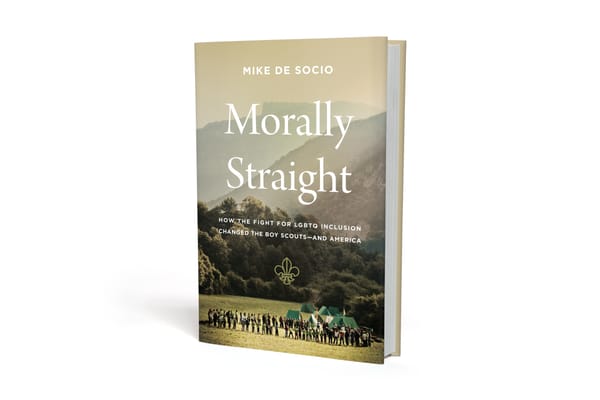Reflecting on "Scouts Honor," the new Netflix documentary
The filmmakers tell the story of the BSA's failure to address child sexual abuse—and forcefully call out the conflation of homosexuality and pedophilia.
When I sat down to watch the latest documentary about the BSA’s bankruptcy and sexual abuse crisis, I was not expecting to learn very much.
I had already seen last year’s Hulu documentary on the topic, and had read every update as the BSA’s bankruptcy unfolded over the last couple of years. But I came away from “Scouts Honor,” the new Netflix documentary released earlier this month, absolutely stunned by what I saw.
The film uncovers new layers of the story that I found to be equal parts horrifying and harrowing. It does not shy away from the details we often mask with euphemisms (“bankruptcy,” “sexual abuse crisis”), and lays out the BSA’s staggering unwillingness to address the problem over many decades.
I’m not going to recap the entire film for you (you really should watch it), but there are two big points from the documentary I wanted to highlight.
Homosexuality ≠ Pedophilia
Of course, we already knew this. But I was blown away by how forcefully “Scouts Honor” pushes back against the conflation of homosexuality and pedophilia.
In fact, the filmmakers argue that the BSA’s anti-gay policy was first created in 1978 as a misguided attempt to keep out child abusers.
Randall Hoenig, a scout executive from Wichita Falls, Texas, says in the documentary that the 1978 policy had a clear motivation: “The thought was it would end all these pedophile cases that were springing up.”
Michael Johnson, the BSA’s former youth protection director, goes even further, saying in the film that he often heard top BSA leaders in the 2010s making this very same argument, that keeping out gays meant keeping out pedophiles.
“This was a reoccurring theme,” Johnson says, explaining how he often had to correct BSA officials on this point. (Steve McGowan, who speaks in the documentary on behalf of the BSA as its former general counsel, said he never experienced this conflation of homosexuality and pedophilia during his time with the organization).
While we’ve had data for decades that most men who sexually abuse children are straight, it was quite surprising and refreshing to see “Scouts Honor” so clearly make this point, and call out the BSA’s ignorance of the facts.
The settlement isn’t as generous as you think
I get it: The BSA’s $2.4 billion settlement to compensate victims of sexual abuse sounds like a lot of money. And it is.
But another point that “Scouts Honor” makes abundantly clear is how this huge pile of cash hardly represents justice for the 82,000 survivors of sexual assault who made claims against the BSA.
For one thing, a large chunk of the money will go to legal fees: The documentary says that lawyers and bankruptcy consultants stand to receive as much as $1 billion, though that number is not yet set in stone.
On top of that, as Lyz Lenz recently discovered digging through the settlement documents, some victims might end up with less compensation than they initially expected.
Depending on where a victim lives, state laws could severely limit payouts. “Per the documents, victims in Alabama, Kansas, Oklahoma, Puerto Rico, Utah, South Dakota and Wyoming will only receive 1 to 10 percent of the settlement money owed to them,” Lenz reported. “Victims in Alaska, Florida, Idaho, Indiana, Kentucky, Maryland, Michigan, Mississippi, Missouri, Nebraska, Nevada, Rhode Island, Texas, the Virgin Islands, Virginia and Wisconsin will only see between 10 to 25 percent of the payouts owed to them.” (Some states, such as Ohio, are working to pass legislation that would clear the way for survivors to receive a full payout.)
The tragedy of this state of affairs is rooted in the bankruptcy itself, a legal structure that was never designed to deliver justice to survivors of sexual abuse. As one of the advocates quoted in the film said: “Bankruptcy is constructed for the powerful, and the powerful win.”
But even considering these shortcomings, the settlement was supported by 86% of abuse claimants, a sign that despite everything, this might be the best result that survivors could hope for.
Correction: A previous version of this article misrepresented the compensation for attorneys in the bankruptcy case; though it could total $1 billion, that number is not yet final. Additionally, this article has been amended to note that the majority abuse survivors support the BSA settlement.




